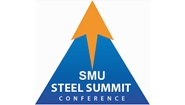Product

February 3, 2020
Popular Economist to Keynote SMU Steel Summit Conference
Written by Tim Triplett
Editor’s note: The following commentary by economist Alan Beaulieu, president of ITR Economics, is excerpted from a recent blog, “A Good Day for Trade.” Beaulieu has been a popular presenter at several Steel Market Update Steel Summits and will speak once again at this year’s conference on Aug. 25 in Atlanta. Click here for more information and to register for the event.
 The U.S.-Mexico-Canada trade agreement passed the Senate and was signed by President Trump. It just awaits approval by Canada. North America will soon have a new and improved trade agreement, generally known as the USMCA or, in Canada, NAFTA 2.0. We are often asked if this is a good thing for the U.S. Based on what we know so far, the answer appears to be that it will be potentially beneficial for some segments of the economy. So, it is a good day for freer trade with our two largest trading partners, at least as far as U.S. exports are concerned.
The U.S.-Mexico-Canada trade agreement passed the Senate and was signed by President Trump. It just awaits approval by Canada. North America will soon have a new and improved trade agreement, generally known as the USMCA or, in Canada, NAFTA 2.0. We are often asked if this is a good thing for the U.S. Based on what we know so far, the answer appears to be that it will be potentially beneficial for some segments of the economy. So, it is a good day for freer trade with our two largest trading partners, at least as far as U.S. exports are concerned.
First, we export more to Canada and to Mexico (singularly) than we do to China. In that regard, they are both more important trading partners to the U.S. Second, the 12/12s are all in negative territory (exports for the last 12 months are below the same time last year). Third, our exports to China have begun to rise, but what you cannot see is that they are rising off the lowest level we have experienced in the last 7.5 years. There is quite a hill to climb. Our exports to these nations and others are bound to improve as the global economy begins to pick up speed in the latter half of this year.
Data shows that imports into the U.S. are declining and that China is the largest source of imports. It is interesting to note that our neighbors to the north and south combine to be a much larger source of goods coming into the U.S. Thus, taken together, they are more important than China in terms of both exports and imports.
The USMCA addresses the automotive industry in several ways. There will be a requirement that 40 percent of automobile parts be produced in plants that have a minimum wage of $16 per hour. This will put some wage pressure on Mexico. Autos must have a regional content of 75 percent to be tariff-free, and there is a new mandate that automobile manufacturers use North American steel and aluminum. The last requirement will take several years to roll out. Taken as a whole, the agreement should help bolster automobile and parts manufacturing in North America.
Some fear that the agreement will open the flood gates for automobiles from Canada and Mexico into the U.S. That is not likely to be the case. As is often so, the perception may be out of alignment with reality. The reality is that U.S. light vehicle sales for the 12 months ending with November 2019 totaled $1.154 trillion. Imported light vehicles from Mexico ($50.999 billion) and Canada ($37.464 billion) account for 4.4 percent and 3.2 percent of light vehicle sales (assuming the imports are sold and not held in inventory). It is not likely that we will see a major jump in the proportion of imports to sales.
The USMCA also streamlines operations for businesses by updating digital trade and copyright rules and by reducing redundancy. In addition, the agreement is expected to increase certainty in the business community, and that will be welcomed by importers and exporters alike. Not everyone will like every aspect of the agreement, but that is the nature of diplomacy and compromise.







